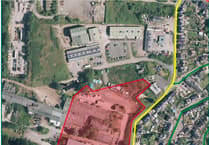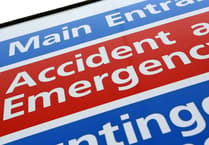NHS GLOUCESTERSHIRE has stressed the importance of end of life conversations and planning, as part of Dying Matters Awareness Week.
Dying Matters Awareness Week (May 6 to May 12) is a week whereby some organisations try to encourage communities to discuss important matters around death.
This year’s theme is the way we talk about death and the importance of having end of life conversations.
Jane Haros, Deputy Director of Nursing, Integrated Commissioning, Health, Care and Communities at NHS Gloucestershire said: “We know that talking about death or dying can be tough and upsetting for those facing End of Life Care but planning, communicating and making our wishes clear is so important when it comes to having a good death.”
NHS Gloucestershire launched web pages to help normalise end of life conversations and provide more information.
Jane Haros added: “Our web pages have been designed with users to help bring together a range of resources families and patients need when it comes to understanding End of Life and Palliative Care“.
The web pages contain information about future care planning, what to expect when someone is dying and support following a person’s death.
Dr Claire Kingswood, NHS Gloucestershire’s Primary Care Clinical Lead for End of Life and Care in the Community said: “End of Life planning and conversations have had negative connotations in the past.
“When we talk about hospital admissions and treatment plans people have associated it with being written off, or not having any treatment.
“I am hoping the tide is turning and conversations are happening earlier, with a focus on how you want to live your life, what is most important to you, and getting your wishes down so they can be honoured.”
Hospice UK said: “Honest, timely conversations about death and dying are essential to good end of life care.
“Yet all too often barriers, including lack of confidence, taboos around discussing death, and confusion about who should be having these conversations mean patients, carers and families may not understand what is happening, or get all the information and support they need.”
More information can be found on NHS Gloucestershire’s website.





Comments
This article has no comments yet. Be the first to leave a comment.